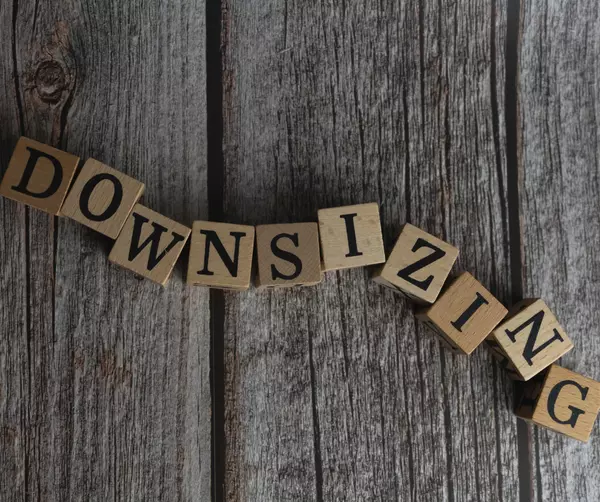Smart Strategies for a Household Budget & Money-Saving Tips

Smart Strategies for a Household Budget & Money-Saving Tips
Managing your household budget effectively is key to achieving financial stability and reaching your savings goals. Whether you're looking to cut expenses, save for a big purchase, or simply gain better control of your finances, small changes can make a big difference. Here are practical tips to help you create a budget and save money without sacrificing your lifestyle.
1. Track Your Spending
Before creating a budget, you need to understand where your money is going. Start by:
✅ Reviewing bank and credit card statements.
✅ Using budgeting apps like Mint, YNAB, or PocketGuard.
✅ Categorizing expenses into necessities (rent, groceries, utilities) and discretionary spending (dining out, subscriptions).
💡 Tip: Identify areas where you’re overspending—small expenses like daily coffee runs or unused subscriptions can add up!
2. Create a Realistic Budget
A good budget aligns with your income and priorities. Use the 50/30/20 rule as a guideline:
💰 50% Needs: Rent/mortgage, utilities, groceries, insurance.
🎉 30% Wants: Entertainment, dining out, hobbies.
📈 20% Savings & Debt Repayment: Emergency fund, retirement, extra loan payments.
💡 Tip: Adjust your budget as needed—your financial goals should evolve with your lifestyle.
3. Reduce Monthly Bills
Cutting down on recurring expenses is one of the easiest ways to save money.
🏡 Housing: Refinance your mortgage or negotiate lower rent.
⚡ Utilities: Use energy-efficient appliances, unplug electronics, and shop for better electricity plans.
📺 Subscriptions: Cancel unused streaming services, magazines, or gym memberships.
💡 Tip: Call providers (internet, phone, insurance) to ask for better rates—many companies offer discounts to loyal customers!
4. Plan Meals & Save on Groceries
Food expenses can quickly get out of control. Lower your grocery bill by:
✅ Meal planning to avoid impulse buys.
✅ Buying in bulk for non-perishable staples.
✅ Using coupons, cash-back apps, and store rewards.
💡 Tip: Cook at home more often—meal prepping can save hundreds of dollars per month compared to takeout!
5. Build an Emergency Fund
Unexpected expenses can derail your budget. Aim to set aside 3–6 months’ worth of living expenses in a separate savings account.
🏦 Start small—saving even $10 a week adds up!
📈 Automate transfers to a high-yield savings account.
💳 Avoid using credit cards for emergencies.
💡 Tip: Treat savings like a fixed expense—just like rent or utilities!
6. Cut Debt & Avoid High-Interest Loans
Debt eats away at your finances. Focus on paying down high-interest loans first (credit cards, personal loans).
📌 Consider the debt snowball method (paying off smallest debts first) or the avalanche method (tackling high-interest debts first).
💳 Avoid carrying a balance on credit cards—interest rates can be 20% or higher!
🏠 Refinance loans if better rates are available.
💡 Tip: Allocate extra income (bonuses, tax refunds) toward debt repayment instead of unnecessary spending.
7. Smart Shopping & Money-Saving Hacks
Being a savvy shopper can lead to big savings. Try these tips:
🛍️ Use Cashback & Coupon Apps: Rakuten, Honey, and Ibotta help you earn money back on everyday purchases.
🎁 Buy Second-Hand: Thrift stores, Facebook Marketplace, and outlet sales offer great deals.
🛒 Wait for Sales: Plan big purchases around major sales (Black Friday, end-of-season clearance).
💡 Tip: Implement the 24-hour rule—wait a day before making non-essential purchases to curb impulse buying!
8. Automate Your Savings
Set up automatic transfers to savings accounts so you’re consistently building wealth without thinking about it.
✅ Use a round-up savings app like Acorns to save spare change.
✅ Allocate a portion of each paycheck to savings before spending.
✅ Consider separate savings accounts for different goals (vacation, emergency fund, home down payment).
💡 Tip: If you get a raise, increase your savings instead of your spending!
Final Thoughts
Budgeting and saving money don’t mean giving up everything you enjoy—it’s about making smart choices that align with your financial goals. By tracking expenses, cutting unnecessary costs, and automating savings, you’ll build financial security and peace of mind.
💰 What’s your favorite money-saving tip? Share in the comments! 🚀
Recent Posts

Is Now a Good Time to Buy or Sell? Let’s Break It Down

What’s My Home Worth? Discover It Instantly with a Home Value Calculator

Remodeling ROI: Which Home Upgrades Pay Off the Most?

Downsizing vs. Rightsizing: Finding the Home That Truly Fits

Understanding the Mystery of Closing Costs and Points

The Home Equity Playbook: Smart Ways to Make Your Home Work for You

How to Find the Best Investment Properties

Mid-Year Market Review: What’s Ahead for Real Estate in 2025?

Should You Hire a Realtor or Sell Your Home Yourself?

5 Costly Mistakes First-Time Homebuyers Make (and How to Avoid Them)
GET MORE INFORMATION

